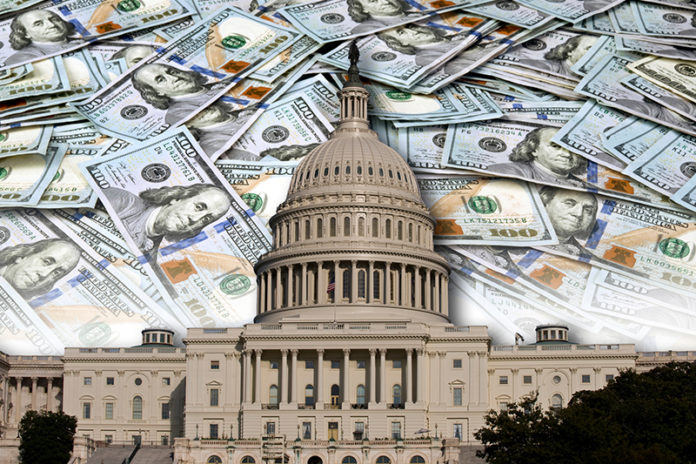President Joe Biden scored the first legislative victory of his presidency with his signing of the much-anticipated and hotly contested infrastructure bill. The bill, which was stalled in the Senate for months, was a subject matter that was bipartisan in nature, but with significant differences in the details between political parties. Through the tumultuous negotiation process, much was revealed about the president, the Senate and the government at large.
A figure that came up repeatedly throughout the negotiations was West Virginia Sen. Joe Manchin. Manchin, a Democrat, represents a very Republican populous. As a result, he is an extremely moderate politician, especially by today’s standard, and is not one to fall victim to the pressures of the far left. Moreover, as opposed to the citizens represented by many other senators, the infrastructure bill has a more tangible impact on the people of West Virginia whom Manchin was elected to represent, specifically through many of the climate- and coal-related aspects of the bill. It was because of this that Manchin and Biden butted heads for so long.
To make matters worse for Biden, inflation has been spreading like wildfire throughout the country. The cost of everyday goods has skyrocketed, which is killing the pockets of millions of Americans. Initially, Biden wanted the cost of the bill to surpass $3 trillion, but Manchin stuck to his guns and drew a line in the sand at $1.5 trillion. His reasons being that printing more money, which is essentially happening, would only work to further the detrimental impacts of inflation. This showdown saw its way into the 2021 state and local elections.
Much to the pain of Democrats, Republicans made political gains far and wide in states like Virginia and New Jersey. Virginia, a state that Biden handedly defeated former President Donald Trump in just one year earlier, saw itself elect a Republican governor, Glenn Youngkin, for the first time in over a decade. The message that Americans sent to Biden was clear: You do not have the mandate or support to completely upend the founding principles of this country.
Not surprisingly, just a week after the elections, Biden was finally able to compromise on the bill with its total cost at $1.2 trillion, less than half of what Biden wanted. Of course, those on the radical left like Alexandria Ocasio-Cortez and the Squad voted against the bill as it did not fit their far-left agenda.
Within the bill, approximately $110 billion is earmarked for new roads and bridges, with another $40 billion for repairs. There are billions allocated for improving road safety as well as modernizing public transport. One facet, which got many excited, was the roughly $66 billion invested into Amtrak, our nation’s crumbling transcontinental train and freight provider. Hopefully, this infusion will help increase routes as well as implement high-speed rail, such that is the norm in Europe and Asia. Another $65 billion is set aside to improve broadband, which should work to get the entire country online. And $42 billion is going toward ports and airports, many of which are outdated and struggle with high levels of congestion and overall poor quality.
Something that progressives had been pushing for was a shift toward green energy. To satisfy them, $15 billion is written in for electric buses, ferries and electric vehicle charging stations. Further pushing the point of renewables, roughly $65 billion is set to rebuild the electric grid, $50 billion toward infrastructure security and protection, and $55 billion for replacing lead pipes to improve drinking water quality. There is also $21 billion set aside for cleaning up Superfund and brownfield sites.
It is estimated that the bill will add another $350 billion to our already massive national debt.
One point I would like to touch on is the allocation of all of these funds. Much noise is made about our country having a revenue problem. To solve this supposed problem, many call for increased taxes on individuals and large companies with high net worths. The real issue our country faces is actually our spending. The government is notorious for being horrible at allocating money and, perhaps more importantly, ensuring that the funds are actually used for the intended. Think for a second about the fact that the man in charge of allocating much of this money, Transportation Secretary Pete Buttigieg, has never handled a budget of more than $350 million. The task he has at hand seems quite frankly impossible, especially given his dereliction of duty during the port crisis. The result will be an incredible misallocation of funds, with the American taxpayer paying the burden.
If this country is to succeed in the coming generations, we must figure out how to be more fiscally responsible. I am not saying that $1.2 trillion is too much money for this bill; all I am saying is there is absolutely no way that the massive sum will be spent as efficiently as it should. Like many government contracts, the cash will be distributed among insiders who will receive payments much higher than the industry average. Our government is taken advantage of by opportunist businesspeople who are just playing within the confines of the broken game.
I applaud Biden for finally getting something done. I just hope the money is not wasted away like it has been in the past.































